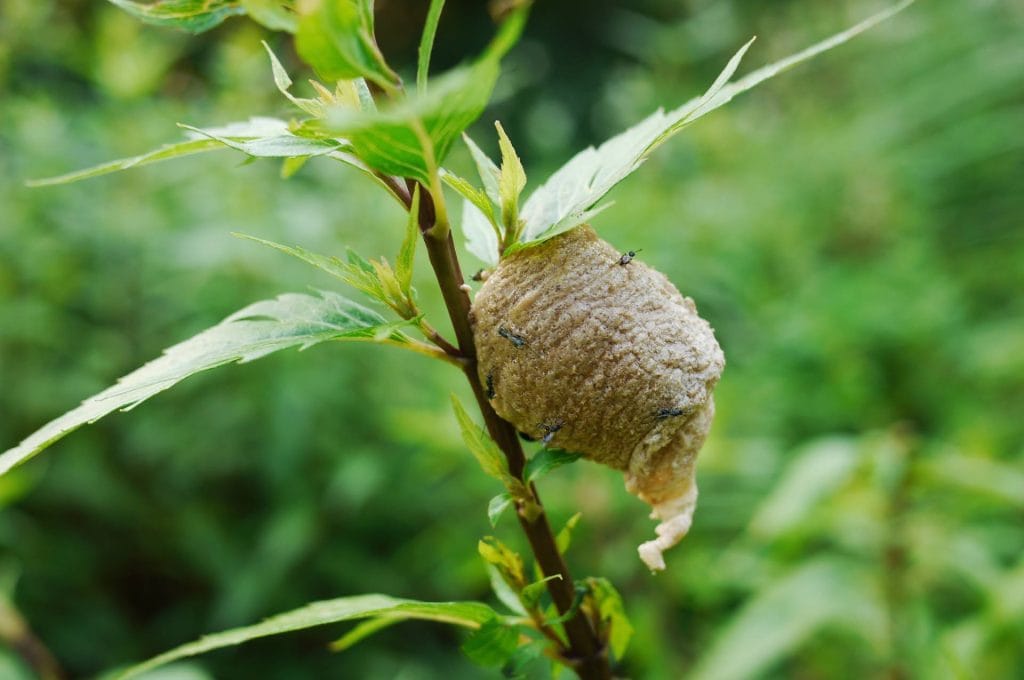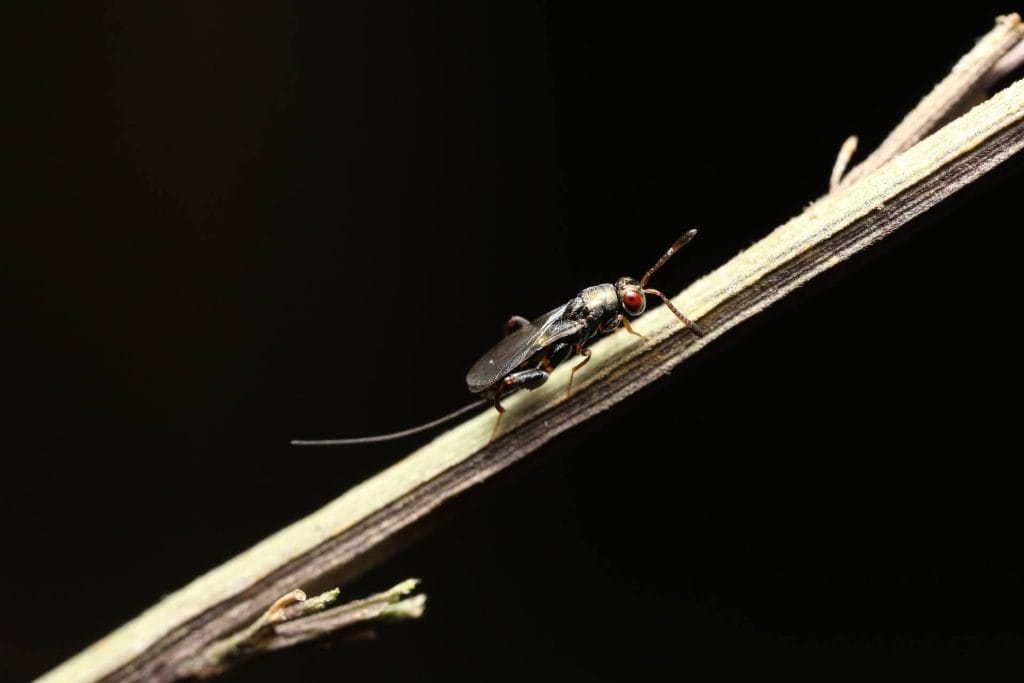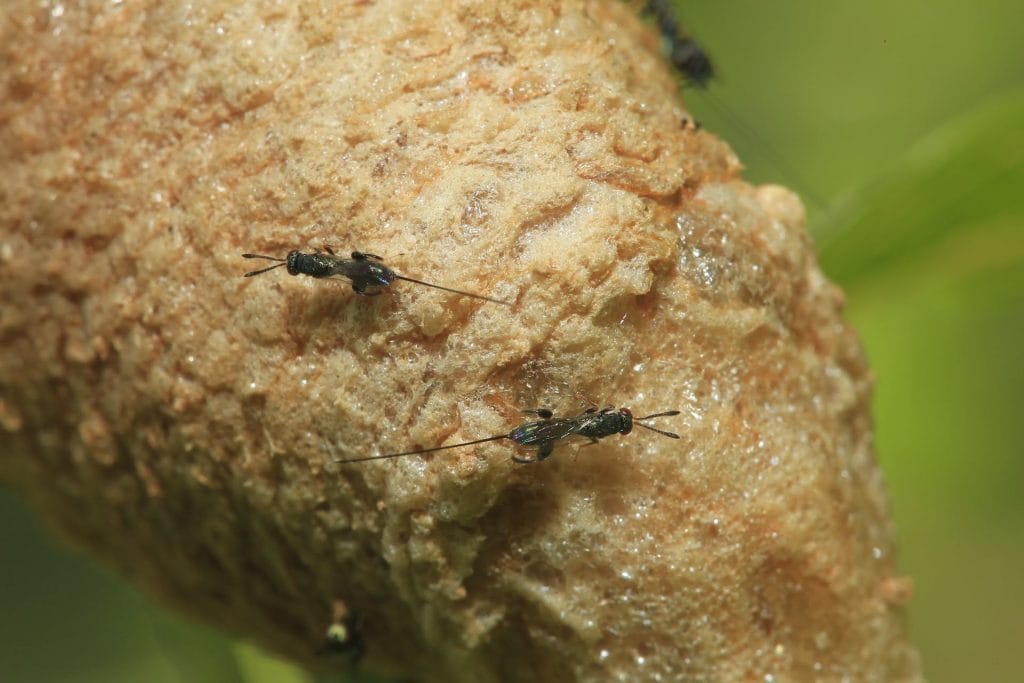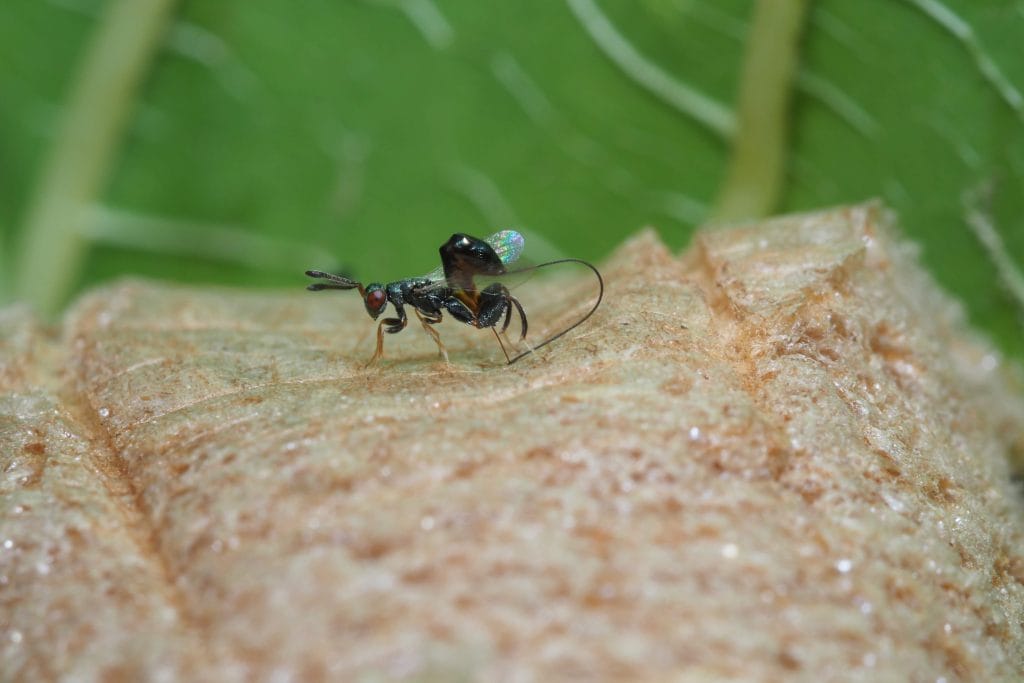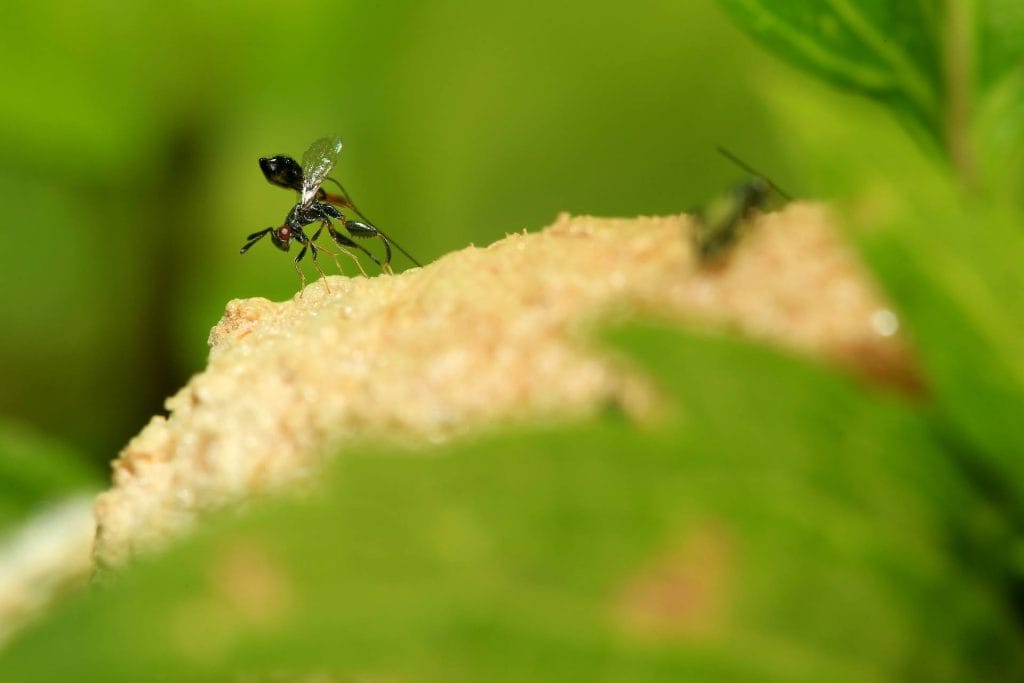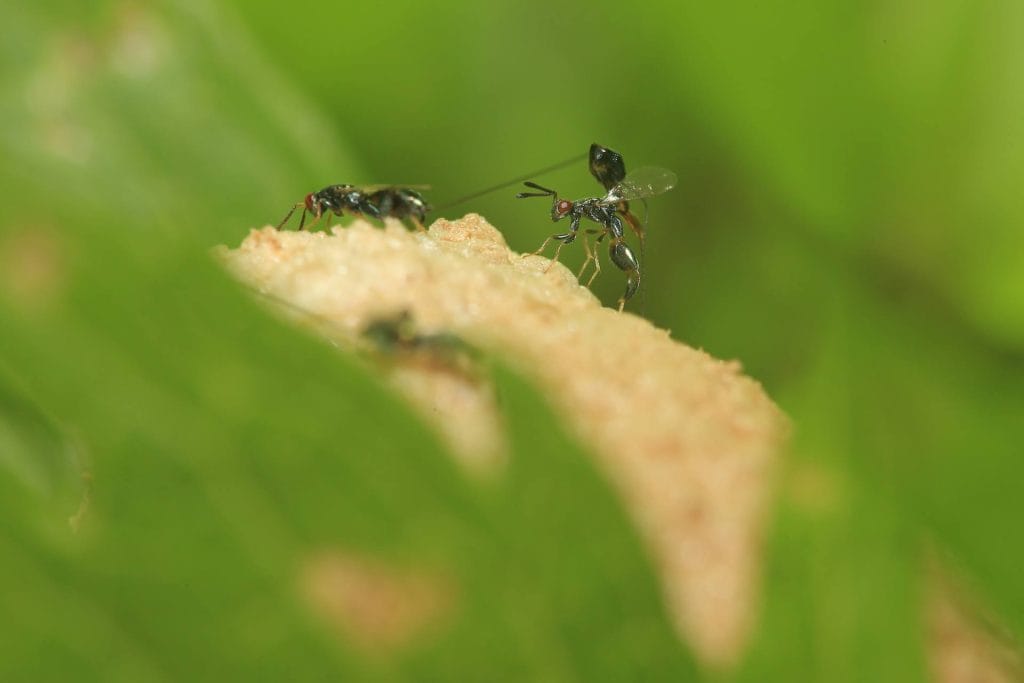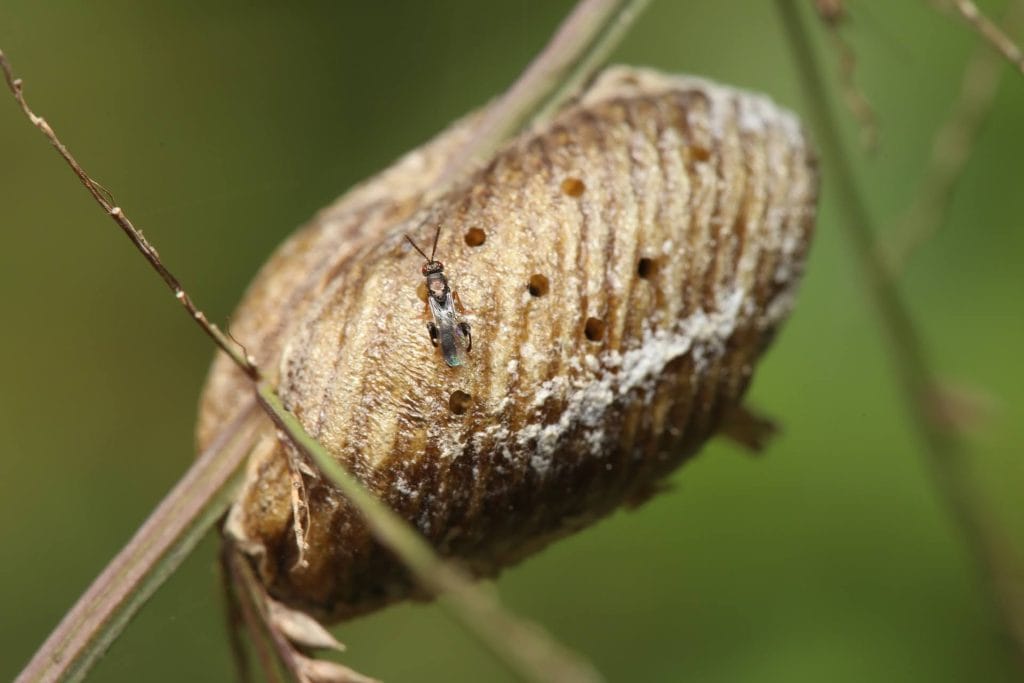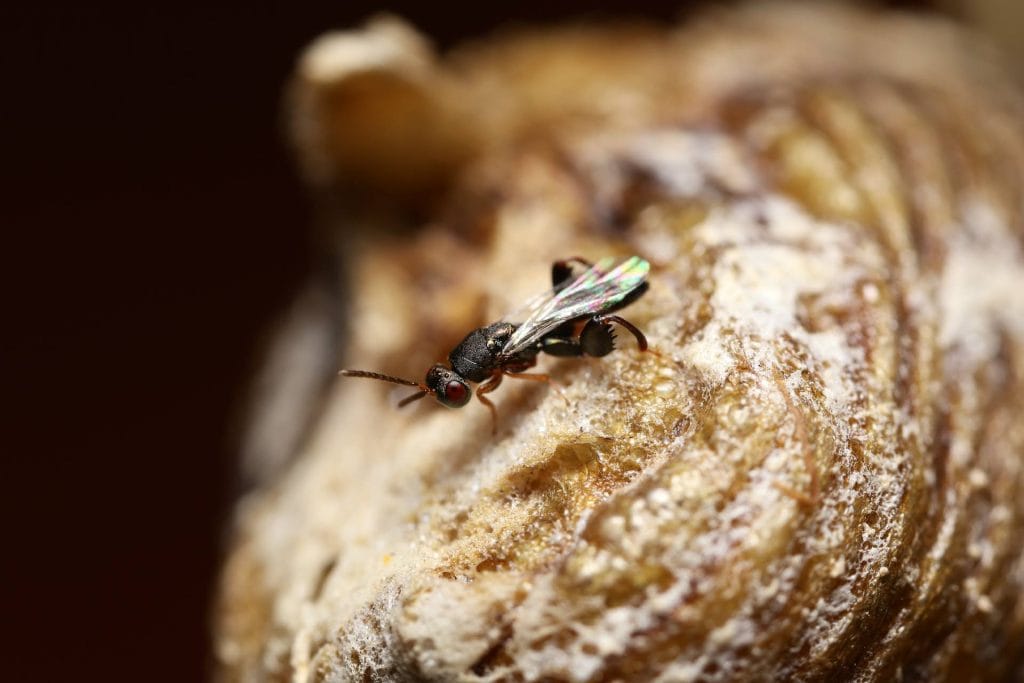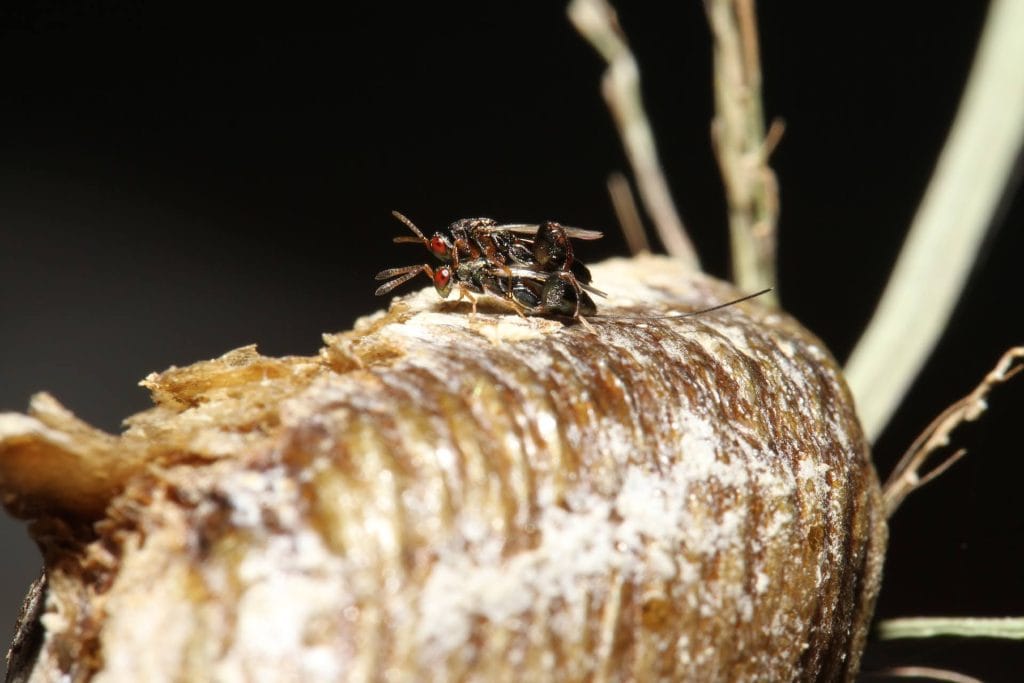自然界是一個複雜的生物網路,位於食物鏈的各種生物息息相關,藉由彼此的消長控制生物的數量,如此才能達成平衡的狀態。昆蟲佔比動物界中四分之三的物種,牠們的數量如果沒有獲得控制,可以呈指數型的爆發增加,因此有許多天敵來控制數量,其中有些的體型豪不起眼,我稱之為「微型殺手」,牠們扮演著自然界中保持平衡的重要角色。
The natural world is a complex biological network where various organisms in the food chain are closely interconnected. Through the rise and fall of different species, populations are regulated, maintaining a state of balance. Insects make up three-quarters of the animal kingdom, and if their numbers were left unchecked, they could multiply exponentially. To keep their populations under control, nature has provided numerous predators—some of which are so small and inconspicuous that I call them “micro assassins.” These tiny creatures play a crucial role in maintaining ecological balance.
中華螳小蜂屬於膜翅目小蜂總科,體長只有 3-4 mm,是典型的微型殺手,胸部及部份腿節俱金屬光澤,後腳腿節膨大,下緣具鋸齒狀銳刺,複眼朱紅色,產卵管可長達身體的1.5倍,牠們專門尋找新鮮的螳螂螵蛸,產卵之後幼蟲寄生於螳螂螵蛸之中。
The Chinese mantis wasp (Hymenoptera: Chalcidoidea) belongs to the order Hymenoptera and the superfamily Chalcidoidea. Measuring only 3-4 mm in length, it is a textbook example of a micro assassin. Its thorax and parts of its legs exhibit a metallic sheen, while its hind legs are swollen and lined with serrated spines on the lower edge. It has striking red compound eyes, and its ovipositor can extend up to 1.5 times the length of its body. This wasp specializes in seeking out fresh mantis oothecae (egg cases), where it lays its eggs. Once hatched, its larvae parasitize the mantis eggs inside, ensuring population control in a delicate yet efficient manner.
